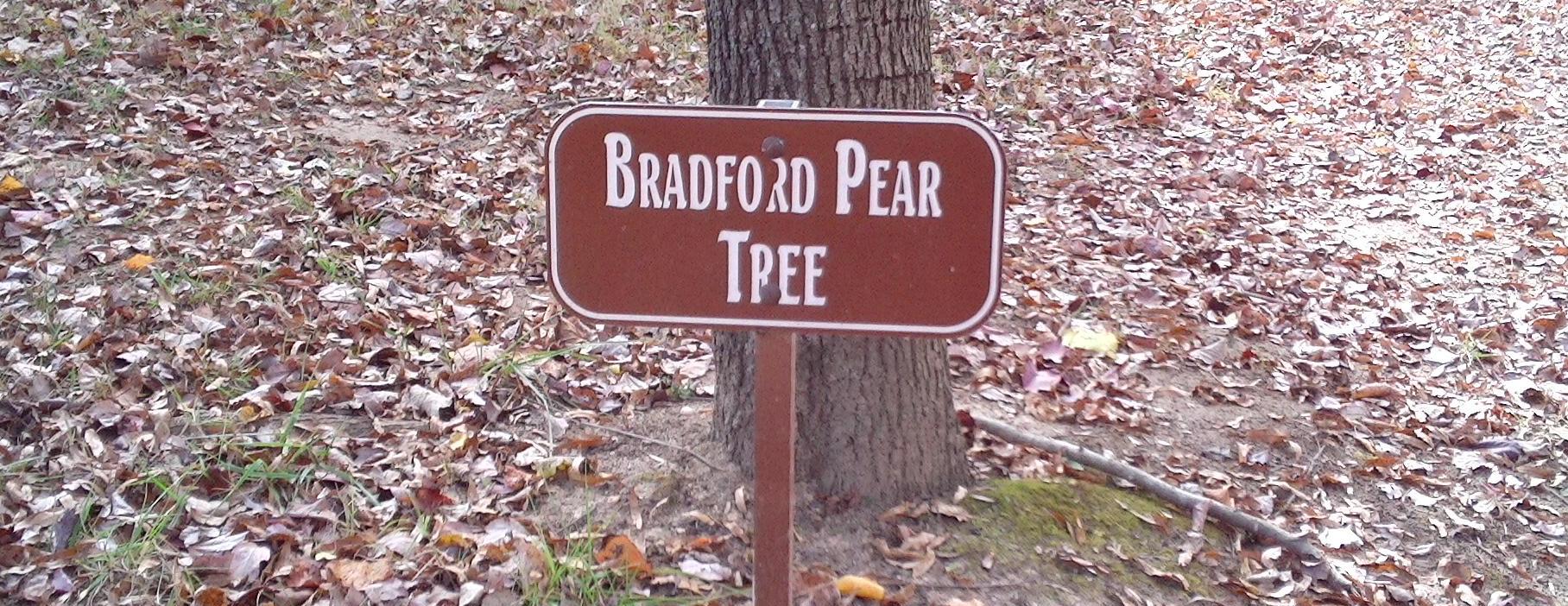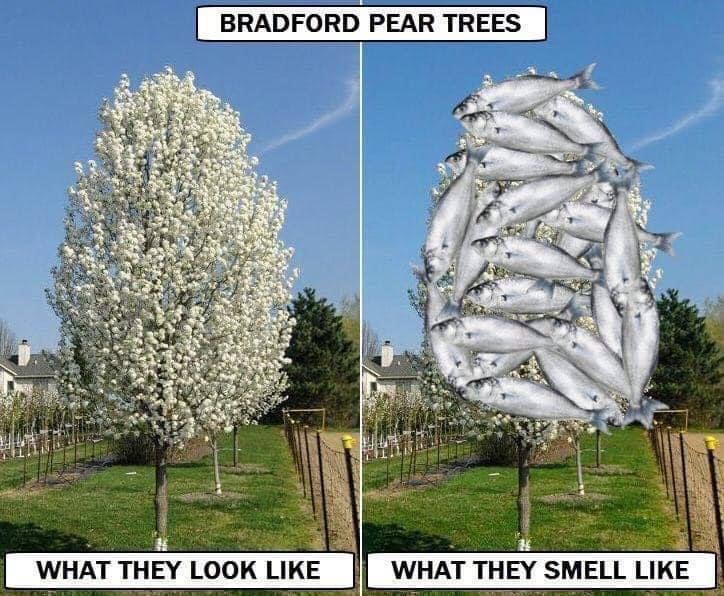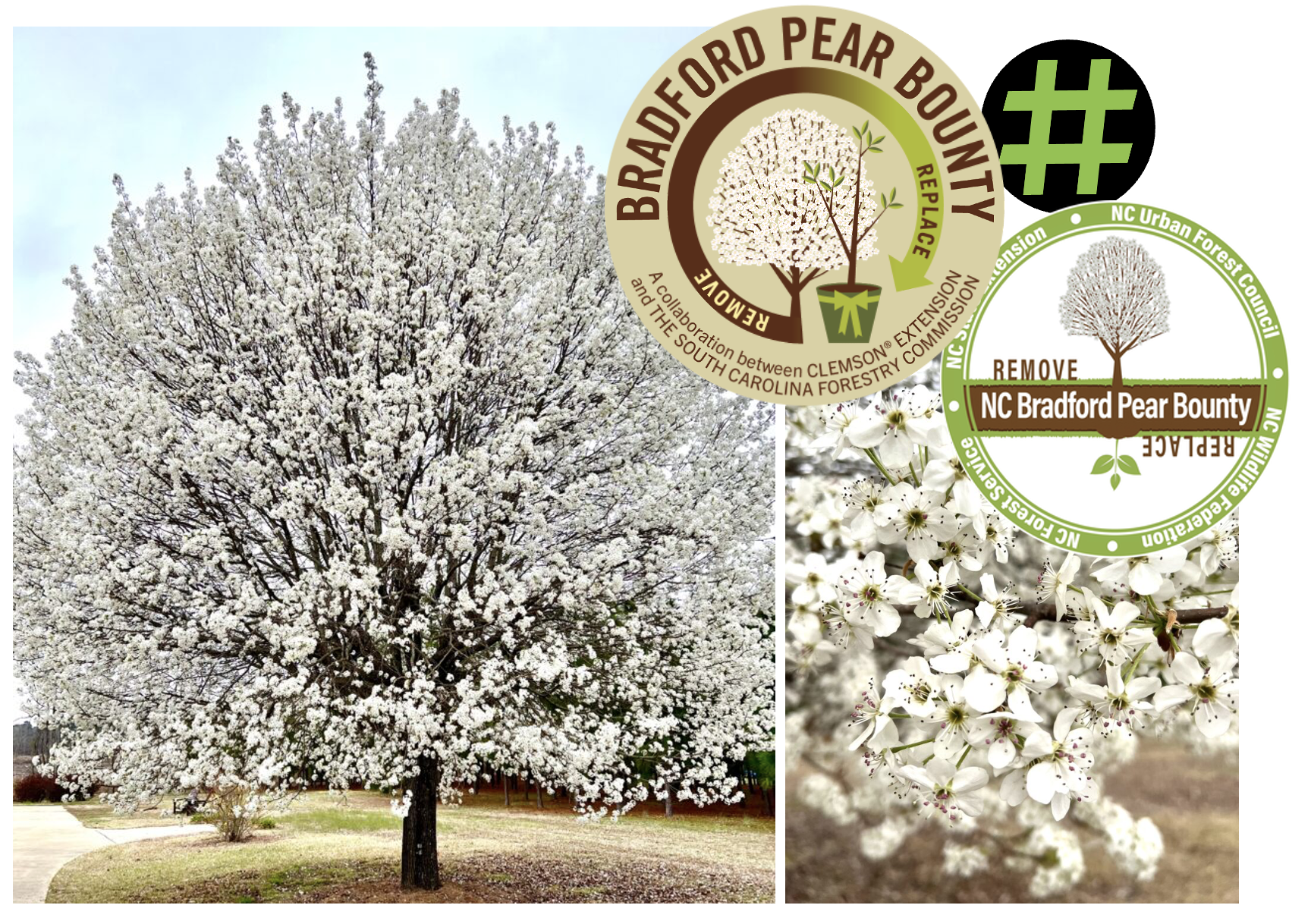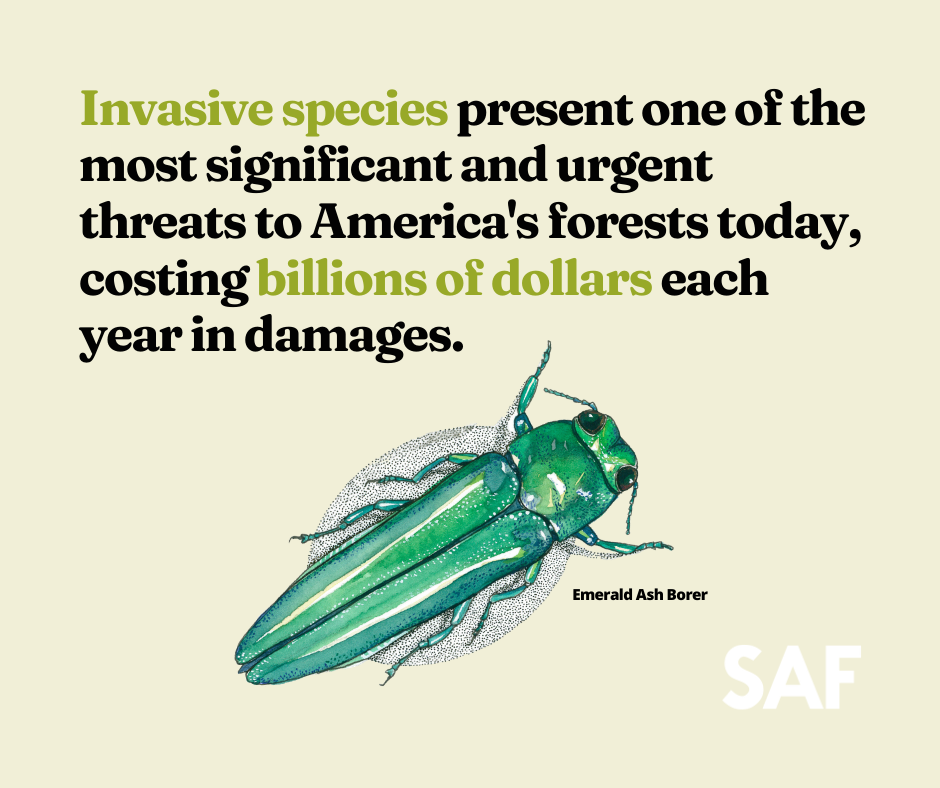Bradford Bounty: a win-win for homeowners and forest lovers.
A terrible no-good very bad very invasive tree.

We love trees here at #forestproud – but we don’t love ALL trees. In fact, the Bradford pear is a terrible, no-good, very bad, very invasive tree.
Invasive Species Awareness Week is perfect timing to call out these trees for the nasty invasives they are, as they are starting to bloom all across the US. Sure, the Bradford Pear has pretty blossoms, but it also “smells of rotten fish, breaks easily during storms, and outcompetes native trees.” As you drive around your neighbor or casually scan the highway banks as you whizz by, you’ll undoubtedly start to notice all the frothy white trees blooming alongside the roads. These are Bradford Pears and their relative, the Callery Pear. These trees are damaging to our native ecosystems and need to be removed and replaced.

Invasive species are one of the biggest threats facing forests across the US in both urban and rural settings, costing billions of dollars each year in economic and environmental damages. The Society of American Foresters and the forest sector as a whole are committed to science-based, proactive, and adaptive approaches to the prevention, management, and control of invasive species in forests at scale, including the sustainable restoration of forests impacted by these species.
We all have a part to play in removing invasives and replacing them with native trees that are essential to climate resiliency, healthy biodiversity, and long-term ecosystem health. Forests need all of us to help do our part to combat the spread of invasives and keep our forests – rural and urban – healthy.
Enter the Bradford Bounty programs.
Spearheaded by Clemson, these programs are now spreading across the southeastern US and beyond. Homeowners bring proof that they cut down Bradford Pear/Callery Pear trees and receive a free native tree to replace each invasive they cut down. This helps offset the costs of removal and replanting and encourages people to directly participate in restoring natives to their yards. Urban trees are essential for capturing carbon, cleaning our air, and filtering our water, but we want them to also support native wildlife, provide essential habitat, be a source of beauty, and to smell…nice.
Google “Bradford Bounty” for your closest bounty-hunter and free tree source.
Want to hear more about how terrible Bradford pears are and meet the mastermind of the Bradford Bounty Program? Meet Dr. Dave Coyle: a Society of American Foresters W. D. Hagenstein Communicator Award winner, renowned science communicator, and professor. He sat down with #forestproud friend and Planthropology podcast host Vikram Baliga to talk about "The Worst Trees, Saving Your Ash, and The Shrimp Olympics."


